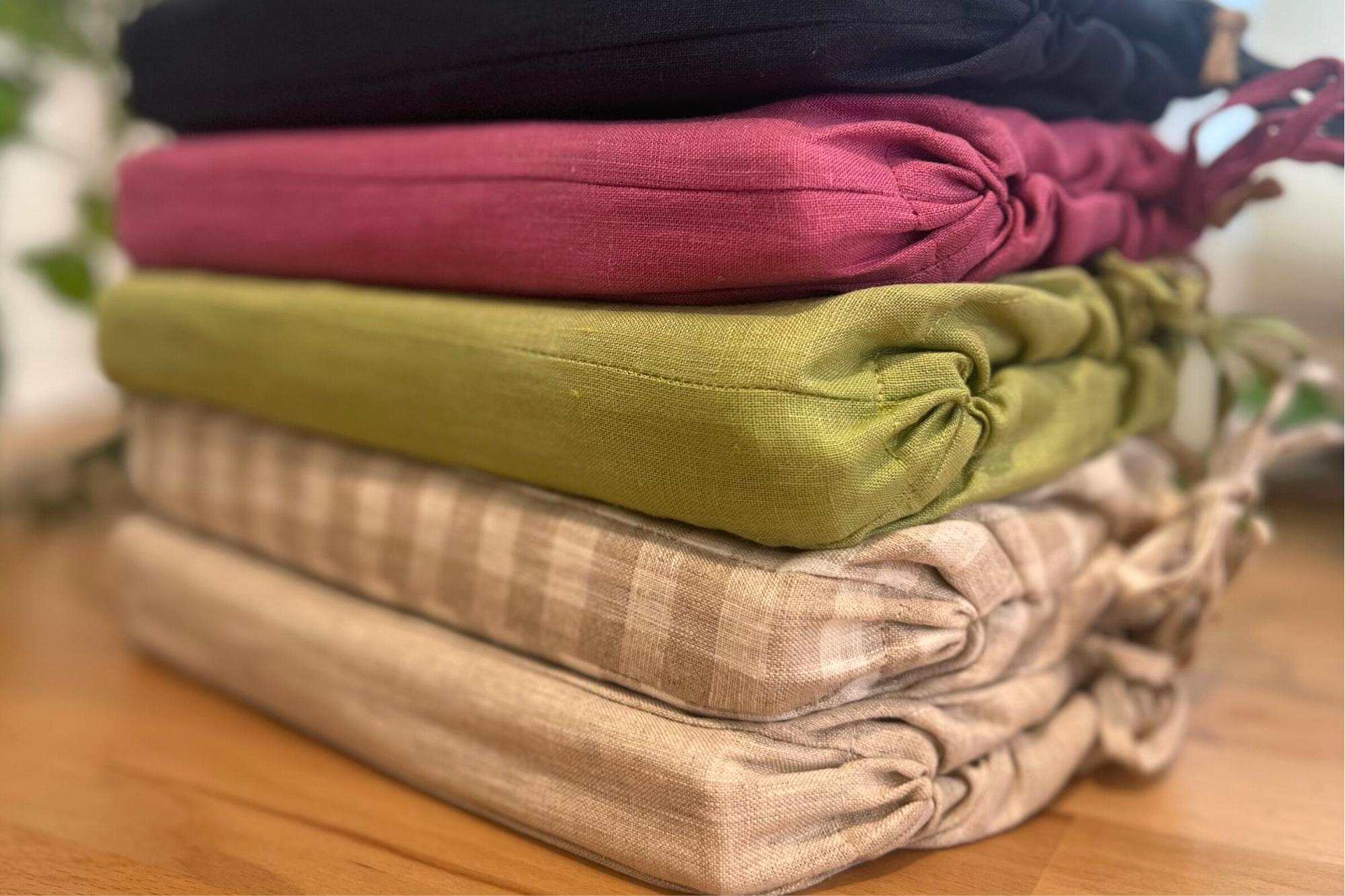
Everything You Need to Know About Our Ivy Linen
Although the price of linen bedding may have dissuaded you from indulging in a set so far, we guarantee that investing in high-quality linen bedding is truly worthwhile. Beddie Linen is made from premium French Flax plants and is a perfect 170gsm weight.
Linen is a beautiful natural product that is woven from the flax plant. It is an extensive and time consuming weave to bring the fibres to ultimate softness, and a superior and beautiful fabric. It has been a favourite for bedding and clothing for centuries. It is, in fact, an ancient fabric, and has a rich and romantic heritage. It is believed to have originated in Egypt 10,000 years ago and there is evidence of its use as a textile in pre-historic caves in Georgia dating back 36,000 years!
Linen, Cotton, Wool and Silk are all beautiful, natural fibres that are the best for so many reasons and here are a few for linen:
- It's Anti-static.
- It's Ultra Hygienic.
- It's breathable.
- It's anti-bacterial.
- It helps stimulate blood flow.
- It's Eco Friendly.
- It's long lasting and durable.
- It's Odour Resistant.
Experience the undeniable comfort of Beddie Linen sheets and understand why they are so highly regarded.
To ensure your linen sheets last, it's important to properly care for them by washing, drying, and storing them correctly.
Don't use Fabric Softener!
Fabric softener can create a film on fabrics, reducing breathability and absorbency, especially with linen. Linen is renowned for its moisture-wicking properties, so compromising this natural ability goes against logic. In addition, fabric softener can diminish the lifespan of your linen by deteriorating the fabric over time. Overall, linen progressively becomes softer with each wash, making it unnecessary to risk impairing its inherent qualities by using a fabric softener.
Take care to avoid direct contact with cosmetics or skincare products as they can potentially stain or leave oily marks that are challenging to eliminate.
Avoid Bleaching Agents
Linen fabric's natural composition makes it susceptible to fading and discoloration from chemical exposure, including bleaching agents found in face creams and ointments. Like fabric softeners, bleaching agents can weaken linen's natural strength, damaging the fabric. Keep them away from your fresh linen!
.
Use a cool, gentle wash cycle
To properly care for linen, it is important to avoid using a default cycle. Instead, opt for a cold-water gentle cycle on your washing machine and use a mild/gentle liquid detergent. Using a cold-water cycle is more gentle on your bed linen, preserving the fabric's color and preventing shrinkage.
.
Avoid exposing your linen to sunlight
Sunlight exposure can lead to brittleness in linen fibers and weaken the overall strength of the fabric. Additionally, extended sun exposure may cause yellowing and irreversible discoloration. It is recommended to dry your linen in the shade to avoid these issues.
.
Line dry in the shade
It is recommended to air dry linen fabric instead of using a tumble dryer to prevent wrinkling and potential fabric weakening from the heat.
In certain situations, you may need to expedite the drying process of your linen fabric to promptly use it on a bed. In such cases, select a low heat setting and promptly remove the sheets from the tumble dryer once they are almost dry. This will prevent any deep wrinkles from forming.
To prevent bleaching or discolouration, it's advisable to dry your colored linen sheets in a shady area. Linen naturally has a relaxed, crumpled appearance, so ironing may not be necessary. However, if you prefer them ironed, use a very low setting.
.
Storing your linen
It is important to neatly fold your linen and store it in a dry, dark cupboard away from sunlight.
Just like anything you have that is a beautiful, premium item, take care of them and they will last a lifetime.
Other articles:
Quick links
Shop
Cotton Quilt Covers
Cotton Bed Sheets
Cotton Pillowcases
Ivy Linen Quilt Covers
Ivy Linen Bed Sheets
Ivy Linen Pillowcases
Cushion Covers
Bundles & Sets
Gift Cards
Blog
About Beddie
The Pillowcase Parlour
Customer Care
Sizing
Shipping & Returns
Terms & Conditions
Privacy Policy
Refund policy
Terms of Service
